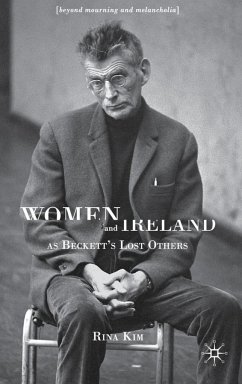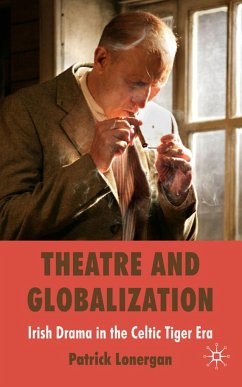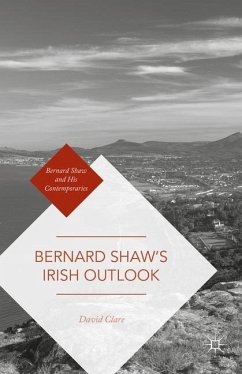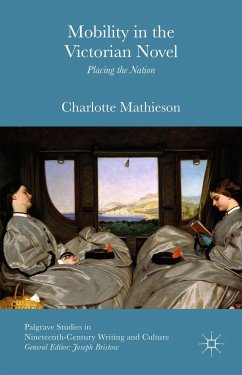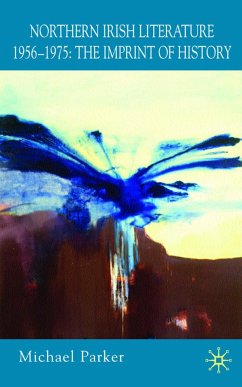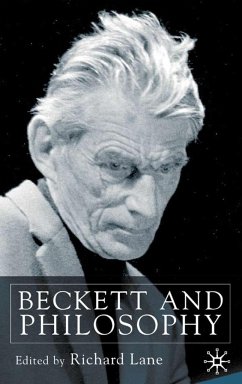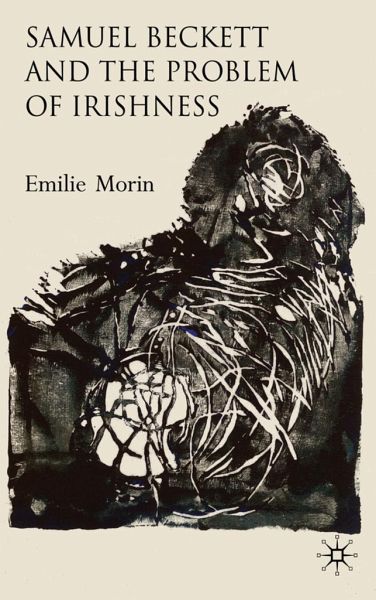
Emilie Morin
Gebundenes Buch
Samuel Beckett and the Problem of Irishness
Versandkostenfrei!
Versandfertig in 6-10 Tagen

PAYBACK Punkte
34 °P sammeln!





Beckett's bilingual oeuvre has been approached from many angles, most of which stress its autonomy from understandings of Irishness emerging from the Irish Literary Revival. Emilie Morin shows that such autonomy is only apparent, and that Beckett's avant-garde practices remain bound to the exigencies that govern their very development.
EMILIE MORIN is Lecturer in the Department of English and Related Literature at the University of York, UK.
Produktdetails
- Verlag: Palgrave Macmillan / Palgrave Macmillan UK / Springer Palgrave Macmillan
- Artikelnr. des Verlages: 978-0-230-21986-1
- 2009 edition
- Seitenzahl: 224
- Erscheinungstermin: 22. Oktober 2009
- Englisch
- Abmessung: 227mm x 166mm x 19mm
- Gewicht: 389g
- ISBN-13: 9780230219861
- ISBN-10: 0230219861
- Artikelnr.: 26569532
Herstellerkennzeichnung
Libri GmbH
Europaallee 1
36244 Bad Hersfeld
gpsr@libri.de
'Samuel Beckett and the Problem of Irishness deftly brings together scholarly erudition with theoretical sophistication in a strikingly original and judicious manner. Particularly impressive is the book's international reach, demonstrating an alertness to French and European contexts as well as the Irish one.'
- Ronan McDonald, Department of English and American Literature, University of Reading, UK
' drawing on unpublished material [Morin's] book contains many fascinating details that illuminate Beckett's attitude to Ireland. The strength of Morin's book lies in the fact that it does not allow one specific theoretical discourse to dominate, but allows a variety of approaches to enter into a dialogue with each other and
- Ronan McDonald, Department of English and American Literature, University of Reading, UK
' drawing on unpublished material [Morin's] book contains many fascinating details that illuminate Beckett's attitude to Ireland. The strength of Morin's book lies in the fact that it does not allow one specific theoretical discourse to dominate, but allows a variety of approaches to enter into a dialogue with each other and
Mehr anzeigen
with Beckett's texts an ambitious undertaking ' Mark Nixon, TLS
'... Morin seeks to expand the subject matter of previously published studies in the field by including some of Beckett's (unpublished) critical writings, his correspondence, the draft material of his texts, and the bilingual aspect of his writing. This refreshing expansion presents Samuel Beckett's Irish heritage as a creative and hermeneutic 'problem', affecting both the geneses and subsequent translations of his texts, as well as their critical reception and interpretation... a pleasure to read ...' - Pim Verhulst, Irish Studies Review
'Irishness ... provides a handy way of addressing a number of critical conversations at once, and Morin's project, informed by her labor in the voluminous international Beckettian archives and beneficially indebted to Adorno's thinking, sensitively explores Beckett's intellectual links to Irish writing and the deployment of Irishness in his own work...Alive to Beckett's involvement in wider European debates about the avant-garde, Morin's book explains particular aspects of Beckett's use of Irishness, and how that usage engages debates within Irish literature and formally strikes new paths. This is no mean feat...When faced with contradictions or evidence that fails to yield a convincing argumentative narrative, Morin lists the options, lets them speak for themselves, and has the integrity not to oversimplify in the service of a pointed argument. That is one strength of her writing, but it is something that future studies must also try to build upon.' - James McNaughton, Modernism/modernity
'An expatriate tends to confront the problem of identity, namely the double alienation both from the place of origin and from the place of residence. As an Irishman living in Paris, Beckett also had difficulties dealing with his "patria" and its "Irishness". Morin, fully aware of this problem, does not simply attribute Irishness to Beckett's writings but meticulously illustrates his struggles, exploring their connections with his aesthetics of abstraction. By combining solid historical and philological research and rigorous bilingual textual analysis, the book offers a comprehensive account of Beckett's relationship to the Irish Revivalist tradition (especially W.B. Yeats) and to "European" modernism.' - Routledge ABES June 2011
'... Morin seeks to expand the subject matter of previously published studies in the field by including some of Beckett's (unpublished) critical writings, his correspondence, the draft material of his texts, and the bilingual aspect of his writing. This refreshing expansion presents Samuel Beckett's Irish heritage as a creative and hermeneutic 'problem', affecting both the geneses and subsequent translations of his texts, as well as their critical reception and interpretation... a pleasure to read ...' - Pim Verhulst, Irish Studies Review
'Irishness ... provides a handy way of addressing a number of critical conversations at once, and Morin's project, informed by her labor in the voluminous international Beckettian archives and beneficially indebted to Adorno's thinking, sensitively explores Beckett's intellectual links to Irish writing and the deployment of Irishness in his own work...Alive to Beckett's involvement in wider European debates about the avant-garde, Morin's book explains particular aspects of Beckett's use of Irishness, and how that usage engages debates within Irish literature and formally strikes new paths. This is no mean feat...When faced with contradictions or evidence that fails to yield a convincing argumentative narrative, Morin lists the options, lets them speak for themselves, and has the integrity not to oversimplify in the service of a pointed argument. That is one strength of her writing, but it is something that future studies must also try to build upon.' - James McNaughton, Modernism/modernity
'An expatriate tends to confront the problem of identity, namely the double alienation both from the place of origin and from the place of residence. As an Irishman living in Paris, Beckett also had difficulties dealing with his "patria" and its "Irishness". Morin, fully aware of this problem, does not simply attribute Irishness to Beckett's writings but meticulously illustrates his struggles, exploring their connections with his aesthetics of abstraction. By combining solid historical and philological research and rigorous bilingual textual analysis, the book offers a comprehensive account of Beckett's relationship to the Irish Revivalist tradition (especially W.B. Yeats) and to "European" modernism.' - Routledge ABES June 2011
Schließen
Für dieses Produkt wurde noch keine Bewertung abgegeben. Wir würden uns sehr freuen, wenn du die erste Bewertung schreibst!
Eine Bewertung schreiben
Eine Bewertung schreiben
Andere Kunden interessierten sich für




